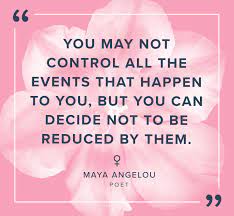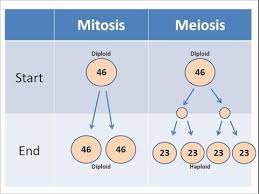If fate whispers to you, “you can’t withstand the storm,” whisper back “I am the storm.” Remember whose daughter you are and straighten your crown.
–Unknown
How do we get from here to there? Because for me, that’s the daughter I want. I want the daughter who can look fate in the eye and speak clearly. My daughter can be a teacher, a doctor, a mommy, an architect, a guitarist, a mountain climber, or all of the above. In the meantime, she should know that she is indeed the storm. Fate would be better served by knocking on the door of some other girl.
How can I help my daughter internalize the message that she is indeed the storm, that her opportunities and abilities are almost without limit? What can I do to help her believe in herself? How can I help her take arms again a sea of troubles? And should any slings and arrows of outrageous fortune appear, how can I help her to pin the arm of the snotty nosed, acne covered, idiot, adolescent octopus behind his back until he decides he might best try to grope some other unwilling partner? How can I ensure that my daughter will know the difference between good touch and bad touch across ages and stages? How can I help her to feel good about herself, her body, her mind, her spirit? How can I help her eat nails and spit lightening?
Probably not by yelling at her, I would argue. “When you keep criticizing your kids, they don’t stop loving you. They stop loving themselves.”
So to grossly exaggerate the continuum, consider children who “behave” at one end of the spectrum. Not such a bad idea if you’ve ever wanted to spend eight uninterrupted minutes with your partner. And yes, I supposed there’s no arguing that kids do need to go to bed at some point. Tomorrow is a “hard working day” as Paul Simon pointed out in “American Tune” and we all need to get some rest. But to get your four-year-old to go to sleep, you wouldn’t slip brandy, Xanax, or Ambien into their sippy cup. (Or if you would drug your toddler, you and I don’t have a lot to talk about.) Then what about scaring, threatening, or traumatizing your little one? Aren’t psychic behavioral modifications as dangerous as pharmacological ones?
The preference of this author is shared purpose and planning. Admittedly, you can’t have a Socratic dialogue with a pre-schooler. Logically consistent syllogistic reasoning is lost against “one more story.” “Good point, Mommy. I shall indeed fade off to dream land now, given the exigencies of tomorrow’s full schedule.” Words no child ever spoke. But if you have had the foresight to run the child ragged during the day (oversimplification: riding bikes up a mountain, yes; watching TV, no) then a cuddle may produce the desired result whereas conversation–we agreed on a bedtime–and terror–let her cry herself to sleep–will not.
Because I want my daughter to grow up secure and attached and to know that she can tell me anything and that I will take her at her word, that I am on her side. None of which she will have any reason to believe if I have abandoned her at every crossroads over the years from bed time to high school graduation. I don’t believe that you are scared of the dark; I don’t believe you’re having trouble falling asleep; I don’t believe you are struggling in math; I don’t believe those mean girls are bullying you. Okay, message received. Now from her point of view: I don’t trust you enough to tell you what goes on in the bathroom at school (using your imagination, be sure to include “nicotine,” “weed,” and “unwanted advances” in your answer.)
Why would any rational creature come forth with truths at any level if she knows the response is going to be some form of, “you’re fat,” “you’re untrustworthy,” and “here’s what you should have done”?
Because toddlers have an inevitable habit of becoming adolescents before you can say, now where did I put my reading glasses? And you hope that the young adult heading off to college has internalized your opinions and values. The alternative, a child who can’t wait to get away from a home where she is neither valued, understood, nor appreciated, leads nowhere good.
Dig your well before you get thirsty. Work on your long-range goals rather than focusing on short-term behaviors. Specifically, a well-adjusted, happy (and exhausted) child is more likely to drift off to sleep at an appropriate time than a worried, misunderstood one. Just as foreplay begins in the morning–why would I want to be physically intimate with my spouse if they can’t put their breakfast dish in the sink?–bedtime is neither an isolated nor an unexpected event. If trust is a bucket that is filled up a drop at a time but can be emptied all at once, better start amassing those drops early.
Sleeping with a biology book under your pillow does nothing for your ability to remember the difference between mitosis and meiosis on the exam the next day. But your daughter is more aware of your values than you can possibly calculate. Whether or not she accepts those values is a function of whether or not she feels listened to, accepted, and believed. The first definition of osmosis has to do with molecules passing through a semipermeable membrane, but the “unconscious assimilation of ideas, knowledge” is right there in the dictionary as well. Your daughter knows what you think; whether or not she feels what you think is important has to do with how she feels about you.
If fate whispers to you, “you can’t withstand the storm,” whisper back “I am the storm.” Remember whose daughter you are and straighten your crown.
When she was little, you stood in from of her to help her withstand the storm. When she was a teenager, you stood beside her, arm in arm, to help her withstand the storm. When she is grown–and you are gone–she will still know that you were with her, forever and always, guiding her to withstand the storm.







